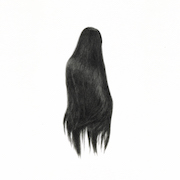That you ‘don’t know what you’ve got ‘til it’s gone’ is, of course, great wisdom. And it’s wisdom particularly true of childhood homes. It was nostalgia for her former home by the Polish coast that inspired the now Warsaw-based cellist Karolina Rec to produce this strikingly atmospheric album for solo cello, just released on FatCat’s post-classical imprint 130701. Supplied as a calling card to the label in demo form, the music forming this debut has been three years in the writing and represents Rec’s process of experimentation with her sound and pushing of her limits as a performer. The title, Resina (from resin, tribute to the blood of the tree which produced her cello) is also Rec’s alias as a solo recording artist.
Exploring the rich palette of the cello’s colours in exclusively solo form, using multi-tracking and live looping, Resina weaves an evocative sound-world which moves from dreamily luminous to unnervingly dark. Rec’s endearingly honest track-by-track commentaries reveal intentions that are shot through with personal significance and a rich vein of folklore. As her record company says, “Resina doesn’t fit into the indistinct background category that contemporary classical music often does” – this is music of great specificity of purpose.
This sense of place is apparent from the first moments of the arresting opening track, ‘Tatry I’. Recalling the wind outside her coastal windows and of being caught by fog on a dangerous mountainside, a whole scene is conjured by a shimmering, tremolo web of sound slowly building to a chord. It isn’t until three minutes into the track that the simple melodic figure begins to sing out its soaring line with delicate vibrato, sounding almost like an erhu. This track is the first of many uses of the very top of the cello’s fingerboard, and these highest notes in the register give a plaintive, almost tortured quality, evoking an often intensely moving sense of longing.
The second, more delicate ‘Tatry’ track, with its exquisite high harmonics, is separated from its companion piece by the light relief of ‘Flock’. Born out of field recordings of cacophonous birdsong, the track initially suggests the birds’ voices and their wheeling flight with its abstract swoops. Later, a jaunty, folkish dance melody emerges, accompanied by rustic repeated chords. The depiction of birds as both ethereal and playful recalls Vaughan Williams’ Lark Ascending as the birds soar ecstatically above a pastoral landscape.
Rec’s notes on ‘Nightjar’ and ‘Dark Sky White Water’ reveal the challenge she feels both mentally and physically in playing them: her assertion that the latter helps her in dealing with anger is interesting as the string-crossing arpeggios – owing much to Pärt’s Fratres – come across as something more meditative. But the visceral power of the track is certainly apparent – as Rec says, “Usually [when performing the piece live] I develop and extend it until I feel my hand is totally exhausted and can unintentionally drop the bow…”
The standout track of the album is perhaps the deceptively simple and deeply unsettling ‘Nightjar’, bringing to mind the bird’s folktale connection to death and bad omen. The combination of low drone and twitchy, higher melodic figure has a totemic quality of threat. Folklore of Eastern Europe abounds in spirits and warnings, and the eerie belief that nightjars will gather around the home of a dying person, imitating their cries, is a wonderful subject for composition. But the essential issue with such highly programmatic music is that it becomes impossible to experience purely as sound without interpretation. On first listen, perhaps, it is best to resist the commentaries and experience the pleasure of immersion in Resina’s world.
Because it is a world that this album creates, and – although somewhat of a smorgasbord of ideas – the album hangs together convincingly as an experience. Even the slightly incongruous miniature ‘After Image’ (an unused piece from Resina’s score for the film short Frogs’ Island) makes motivic connections with the melody in the album’s opening track. The blurring and smudging effect in ‘After Image’ treads the more electronica-driven ground of Jon Hopkins or Matthew Herbert’s more blissed-out offerings, and is perhaps more in line with Rec’s previous work in leading Polish alternative bands such as Nathalie and the Loners.
But although this album is clearly a step away from the usual features of full-band music and into more demanding territory of classical technique, virtuosity is entirely secondary to musical expression. The performances are allowed to be imperfect, with minor issues of tuning and of ensemble between layers, and the “as live” experience this generates gives a bracing vitality and presence to the album. It is only on the last track, “Not here” that Rec’s vocals are heard, wordlessly, as she expresses her nostalgia for her pre-Warsaw life. After a brief hiatus, that atmospheric drone returns to complete this city album, rooted in the soil of the coast.


